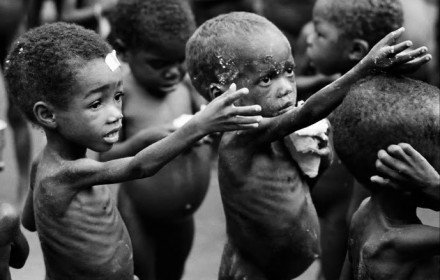How can we judge the possible consequences if we could not determine the result of an analyzed event?

Image Source
Among the trouble we face in deciding the moral valence of an event is that it regularly appears to be difficult to decide whose sake should most concern us. People have contending interests, mutually inconsistent ideas of satisfaction, and there are some outstanding conundrums that jump into our way the minute we start considering the welfare of entire populations. As we are going to see, population ethics is an infamous engine of paradox, and nobody has concocted a method for evaluating collective well-being that moderates all of our intuitions.
As the philosopher Patricia Churchland puts it, "nobody has the smallest thought how to think about the mellow cerebral pain of five million against the broken legs of two, or the needs of one's own two children against the needs of a hundred inconsequential mind harmed children in Serbia." Such riddles may appear of unimportant academic interest, until the point that we understand that population ethics represents the most imperative choices societies ever make. What are our moral responsibilities in the midst of war, when ailments spread, when millions endure starvation, or when global assets are rare? These are minutes in which we need to survey changes in collective welfare in ways that indicate to be judicious and ethical.
Exactly how roused would it be advisable for us to be to act when 250,000 people kick the bucket in a seismic tremor on the island of Haiti? Regardless of whether we know it or not, intuitions about the welfare of entire populations decide our reasoning on these matters. But, when we basically disregard population ethics as we are psychologically arranged to do. The work of the psychologist Paul Slovic and partners has revealed some fairly startling constraints on our ability for moral reasoning when considering expansive gatherings of people.

Image Source
When human life is undermined, it appears to be both judicious and moral for our worry to increment with the quantity of lives in question. In the event that we believe that losing many lives may have some extra negative results, the curve of our worry ought to develop more extreme still. However, this isn't the way we characteristically react to the anguish of other human beings. Slovic's trial work recommends that we naturally think most about a single, identifiable human life, less around two, and we develop more callous as the body count rises.
He trusts that this psychic numbing clarifies the broadly bemoaned fact that we are generally more troubled by the torment of single child than by a legitimate genocide. What he has named "genocide disregard," speaks to one of the all the more confounding and noteworthy disappointments of our moral intuition. He additionally found that when allowed to give money in help of penniless children, subjects give most liberally and feel the best sympathy when informed just regarding a single child's anguish.
At the point when given two penniless cases, their sympathy disappears. What's more, this underhanded pattern proceeds with: the more noteworthy the need, the less people are emotionally influenced and the less they are slanted to give. Obviously, foundations have long comprehended that putting a face on the information will interface their constituents to the truth of human enduring and increment gifts. Slovic's work has affirmed this doubt, which is presently known as the identifiable victim effect.

Image Source
Slovic has demonstrated that setting the narrative of a single poor individual with regards to more extensive human need dependably lessens altruism. The fact that people appear to be dependably less concerned when faced with an expansion in human enduring speaks to an undeniable infringement of moral standards. The vital point is that we instantly perceive how shaky this allocation of enthusiastic and material assets is once it is conveyed to our consideration.
These exploratory discoveries are so striking that they are obviously conflicting on the chance that you think about what transpires little girl, and you think about what happens to her sibling, you should, in any event, think as much about their consolidated destiny. Your worry ought to be combined. At the point when your infringement of this rule is uncovered, you will feel that you have submitted a moral blunder. This clarifies why aftereffects of this kind must be gotten between subjects. We can make certain that on the off chance that we displayed the two inquiries to every member in the examination, the effect would vanish.
One of the immense undertakings of civilization is to make cultural instruments that shield us from the minute disappointments of our ethical intuitions. We should incorporate our better selves with our laws and institutions. Realizing that we are generally unequipped for esteeming two children more than either child alone, we should assemble a structure that reflects and authorizes our more profound comprehension of human prosperity. This is the place a science of morality could be fundamental to us. The more we comprehend the causes and constituents of human satisfaction, and the more we think about the experiences of our kindred human beings, the more we will have the capacity to settle on savvy choices about which social approaches to receive.

Image Source

References:
https://www.jw.org/en/publications/magazines/g201311/moral-values-enrich-life
http://www.converve.com/blog/detail/values-ethics-morals-and-the-events-industry
https://www.pachamama.org/social-justice/social-responsibility-and-ethics